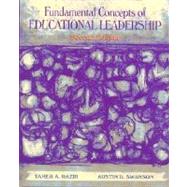
| Part I Leadership in a Period of Dynamic Change | 1 | (84) | |||
|
3 | (26) | |||
|
29 | (31) | |||
|
60 | (25) | |||
| Part II Schools as Learning Organizations: Communication and Human Interaction | 85 | (110) | |||
|
87 | (34) | |||
|
121 | (35) | |||
|
156 | (39) | |||
| Part III The Generation and Use of Information in a Learning Organization | 195 | (60) | |||
|
197 | (25) | |||
|
222 | (33) | |||
| Part IV Decision Making and Change | 255 | (92) | |||
|
257 | (24) | |||
|
281 | (34) | |||
|
315 | (32) | |||
| Part V Strategy Formulation and Implementation | 347 | (120) | |||
|
349 | (32) | |||
|
381 | (36) | |||
|
417 | (33) | |||
|
450 | (17) | |||
| Part VI Leadership for a New Millennium | 467 | ||||
|
469 |
The New copy of this book will include any supplemental materials advertised. Please check the title of the book to determine if it should include any access cards, study guides, lab manuals, CDs, etc.
The Used, Rental and eBook copies of this book are not guaranteed to include any supplemental materials. Typically, only the book itself is included. This is true even if the title states it includes any access cards, study guides, lab manuals, CDs, etc.